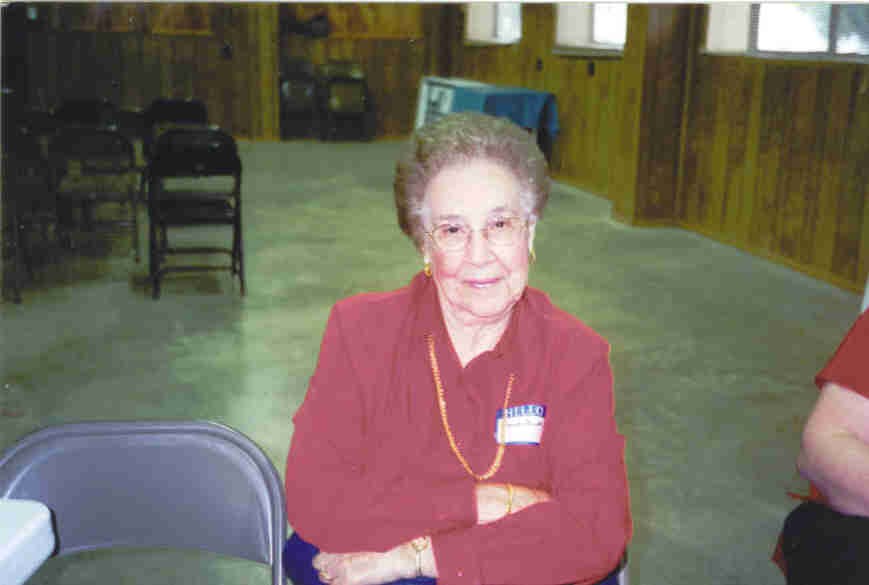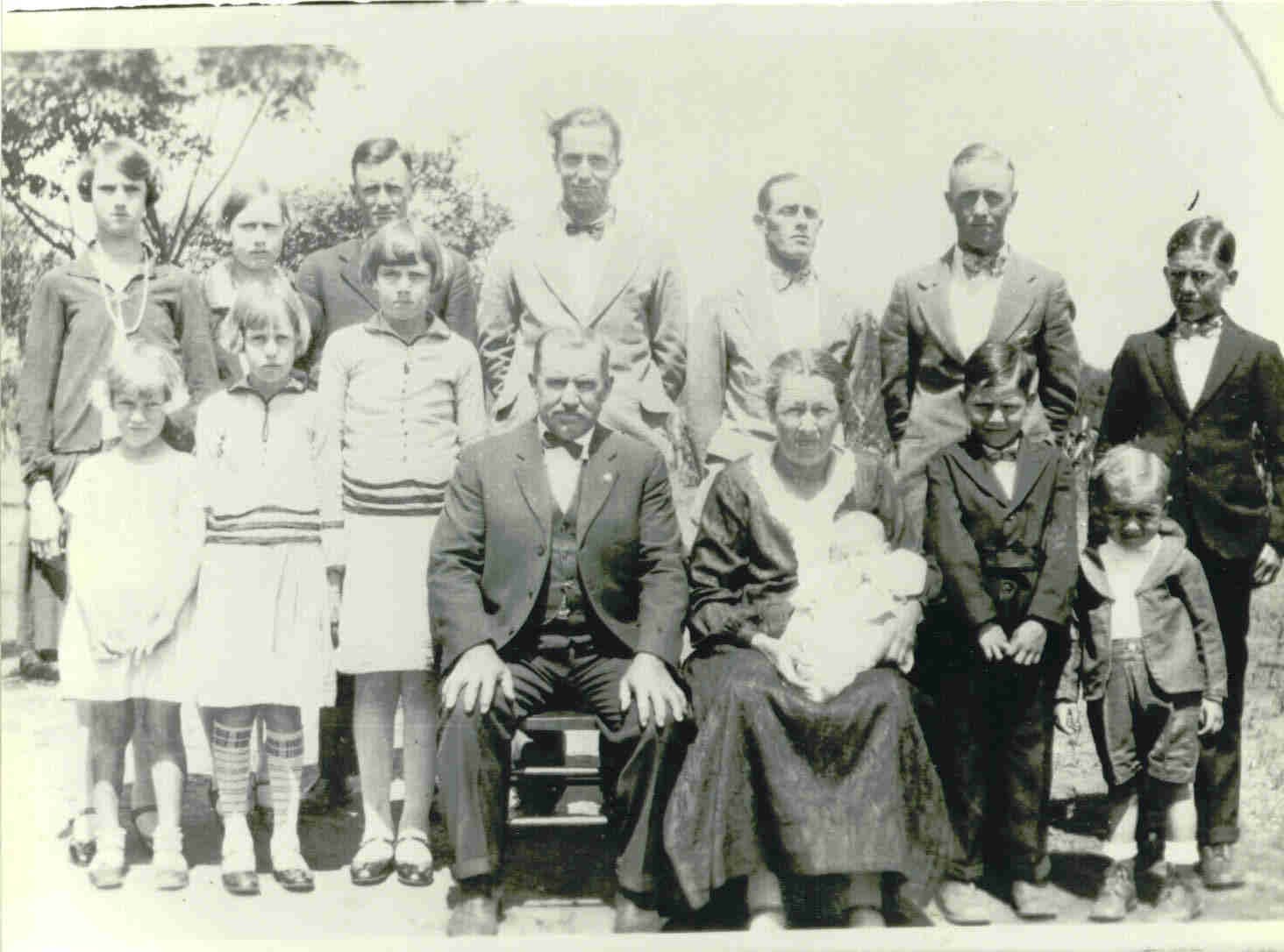Marian Mueller (nee Koening)


What was it like living during the ,Great Depression from what you remember?
It wasn’t very easy, because I was from a big family and we all had to work real hard to make a go of it.
Since you were from a big family, do you think it would have been easier living in a small family?

Well, I wouldn’t know about that because I never was with a small family, so I don’t know if it would be easier or not.
Since you were a small girl during the depression, do you think it would have been harder if you were older?
I don’t know if it would have been any easier, we just all had to work hard to make a go of it.
What was it like working in the fields, and since you’re a girl, in the house?
It was not easy working in the fields, and we worked in the fields, and we come home and had to work in the house.
What did you do in the house?
Well we cooked, washed dishes, scrubbed floors, and well, we did a little bit of everything, let’s put it that way.
How long were your workdays? From dawn to dusk?
Yes, from dawn to dusk, is right.
Did you get any breaks during that time?
Oh yes, we got little breaks. In the morning, around ten, our mother, if we were working in the fields, she’d bring us a break. Like a maybe a cookie and some coffee or something like that; and then again at noon we had a break, and then in the afternoon around four we had another break, or then in the evening when we got through, well that was it.
So what did you eat mostly, like what kind of foods? What ya’ll picked?
Oh, what we picked is right. We had a beautiful garden all the time, we just ate everything out of the garden. And had our own cattle and hogs, and whatever you want to call them.
Livestock?
Yes, we had all our own meats, we very little bought out of the stores.
So what did you have to buy from the stores?
Our flour, and sugar, and coffee and odds and ends like that, that we couldn’t grow.
Where’d you get your milk from?
From our dairy cows, we had to milk them.
And when you went to the store, what’d you buy it with? Money or did ya’ll have stamps?
Money!
Money that ya’ll had?
Yes, money!
So, how did you get the money?
From the farm, like we raised cotton. We’d sell the bales of cotton and we’d milk the cows; we sold the cream of the milk. We sold all that; eggs, sometimes we’d have a few chickens to sell.
Do you remember how much you got from the cotton?
A bale of cotton, oh goodness. They weren’t very much at that time in those years.
So what’d you do for fun?
We’d have company some Sundays, we’d play ball with the boys and girls who came over, or we went somewhere. On Saturdays for entertainment we did get to go to dances.
And how much did that cost?
Ten cents to get in the hall, and then maybe they gave us a nickel to buy a soda water.
So did ya’ll do that every Saturday?
Well, not every Saturday. Sometimes we had to skip a Saturday. It just depends on where it was at. If it was too far from the house, we didn’t drive there.
Did you live in a religious family?
Do what?
A religious family?
Yes, we sure were. We’re Lutherans, and we went just about every Sunday.
Your last question: what were the life lessons you learned?
What are the what?
What are the life lessons you learned?
Pretty hard work, let me tell you. And it wasn’t easy for all of us, not when you’re from a family of 12. We had to work very, very hard.
Do you remember any great events?
Great events? Not really. You see, I was kind of small at that time.
Thank You
When you were at home what language did you speak?
German
Do you still speak German, a little?
Yeah, once in a while when there’s a bunch of us together.
You said you played ball. What kind of sports did you play?
We, I played volleyball and we played baseball when a whole bunch of us kids got together.
What was your favorite?
I like football, I like baseball, and I don’t like basketball.
What distance was too far to drive on Saturdays?
It depends on where we went. We lived 12 miles out of town. That’s a pretty good ways. We went to town in the afternoon. A lot of times,we didn’t get to go back to town because we wanted to go to the picture show.
Pabst Corporation Pearl Brewery "Pearl Lager Beer Brewing Company" http://www.stic.net/users/pabst/breweries/peralbrew/body_pearlbrew.html This tells about the history of the Pearl Brewery in San Antonio, Texas.
Www.MapQuest.com Kirby, Texas This gives a map of Kirby where she now resides.
Ross Nordeen Great Depression "America's Great Depression" http://www.amatecon.com/great depression.html. Revised July 6, 2002 This site gives a lot of information on the Great Depression in America. It includes timelines, pics, facts, and many other informative features
Mooresville Consolidated School Corporation Cost "Prices of Various Items" www.mcsc.k12/madedo/prices.html The site gave prices of items during the Depression.
TSHA Online Floresville, Texas. "Floresville, Texas" www.tsha.utexas.edu/handbook/online/articles/view/FF/hgf3.html 1990 Gives information about the town of Floresville, Texas. It also tell how the town was started and how it has grown.
Moulton Chamber of Commerce
Multon, Texas"Moulton, Texas"http://www.moultontexas.com/ This is Moulton's
official website, it tells you the history of the town along with present day events and news.